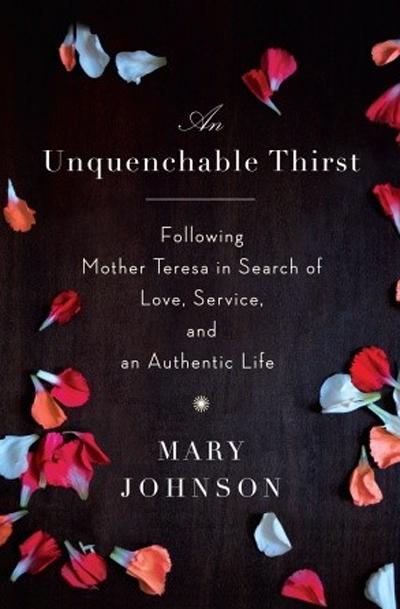
Mother Teresa.
In a 1949 article about Mahatma Gandhi for Partisan Review, George Orwell wrote, “Saints should always be judged guilty until they are proven innocent.” In the case of Mother Teresa – née Agnes Bojaxhiu of Skopje, Albania – the jury is still very much out.
Arguably the most revered woman in modern history, the Saint of Calcutta has, since her death in 1997, become a more polarizing figure. While the late Pope John Paul II tweaked the rules of the Catholic Church specifically to fast-track her to sainthood, journalist Christopher Hitchens, author of The Missionary Position: Mother Teresa in Theory and Practice and devil’s advocate, called her, among other things, “a thieving, fanatical Albanian dwarf” and referred to her saintly legacy as “the greatest emotional con-job of the 20th century.”
Until recently the majority of information on Mother Teresa and her Missionaries of Charity – the organization she founded in 1950 – has come from competing polemics, with the likes of Hitchens and Kolkata (formerly known as Calcutta) doctor Aroup Chatterjee (Mother Teresa: The Final Verdict) on the one hand, and insipid hagiographies such as Kathryn Spink’s official biography and the films of Canadians Anne and Jane Petrie on the other. Perhaps the greatest waves were caused, however, by Mother Teresa’s private letters, as published by Father Brian Kolodiejchuk under the title Mother Teresa: Come Be My Light, the Private Writings of the Saint of Calcutta, in which Mother Teresa reveals a spiritual crisis that plagued her for decades.
Into this turbulent sea bravely wades author Mary Johnson, who spent 20 years as a Missionary of Charity. Johnson, who was given the name Sister Donata during her novitiate with the order, entered the austere world of convent life in the South Bronx when she was 19. She chronicles her experiences in a fascinating and wrenchingly honest new memoir, An Unquenchable Thirst: Following Mother Teresa in Search of Love, Service, and an Authentic Life.
I meet Johnson at the office of Random House Canada in Toronto. We discuss the personal, emotional and political effects of her two decades in the orbit of Mother Teresa.
“A lot of people are very invested in the image of Mother Teresa, and they don’t want you to mess with their idea of her… Some people will be ready for this book, and some people won’t,” Johnson says with a laugh. “Reliving it was really hard. At first I was afraid of writing the difficult things.”
Johnson says she overcame her fears by writing the most difficult passages in cafés and libraries, surrounded by people – this kind of social interaction was largely forbidden in the severe introspective world of the Missionaries of Charity, where sisters are trained to subordinate themselves totally to Mother Church. Unlike memoirs in which the author invokes the omnipotence of hindsight, Johnson’s allows for the arch of her journey to play out in real time; she becomes the protagonist in a kind of biographical novel. We experience her initial zeal, growing disillusionment and gradual sexual, intellectual and emotional emancipation.
When Mother Teresa won the Nobel Peace Prize in 1979, she gave a speech in which she claimed that the greatest threat to world peace was abortion. This is, perhaps, unsurprising given the Holy See’s fanatical stance on contraception, abortion and divorce, but the severity of her phrasing still has the power to shock. Johnson’s view on the issue has softened considerably since leaving the Church.
“I believe that women need to have the right to choose” and, she adds with welcome nuance, “I do believe that human life must be treated with respect.”
In response to the charge that Mother Teresa was ignorant of world politics and professions that she was apolitical — while taking money from the Duvalier dictatorship in Haiti, laying a wreath on the tomb of the atheistic Albanian despot Enver Hoxha, and accepting money from Charles Keating, who robbed retirees of millions during the US savings and loan scandal of the late 1980s — Johnson speaks to the profound social depravation of convent life: “We sisters did not know about these things,” she says. “They were reported in the press, but we never saw newspapers, we didn’t have a television, we didn’t have a radio. We didn’t know what was happening in the world unless someone told us.”
Johnson’s journey of gradual self-discovery encompasses both mental and physical rebellion against the strictures of sisterhood. Along the way she experiences several startling, confusing and revelatory same-sex encounters. Mother Teresa’s beliefs regarding homosexuality are not widely known because, as Johnson says, “She never made public statements about homosexuality.”
Ever the contradiction, Mother Teresa opened the first hospice for AIDS victims in Greenwich Village, but she also wrote a letter about an incident involving a sister who was dismissed from the order because of her alleged lesbianism. As Johnson recalls, “When [Mother Teresa] took one of the sisters to her house, that sister’s mother received them and said, ‘It would have been better if you had brought a coffin to my house today than my daughter in this disgrace.’ And when Mother would tell this story she would always express great sympathy for the [sister’s] mother, as though, for her, it would have been better had she brought a coffin.”
Johnson has since overcome the poison of Catholic anti-sex rhetoric, and although she is married to a man, she says with a wry smile, “A person’s gender [is] not as important to me as the content of their character.”
When I ask Johnson about her motivations for recording her remarkable story, she expresses an altruistic agenda that transcends personal catharsis.
“I hope this book will promote dialogue… and that people will start talking from the [perspective of the] reality of their lives,” she says. “We don’t do that enough.”

 Why you can trust Xtra
Why you can trust Xtra


